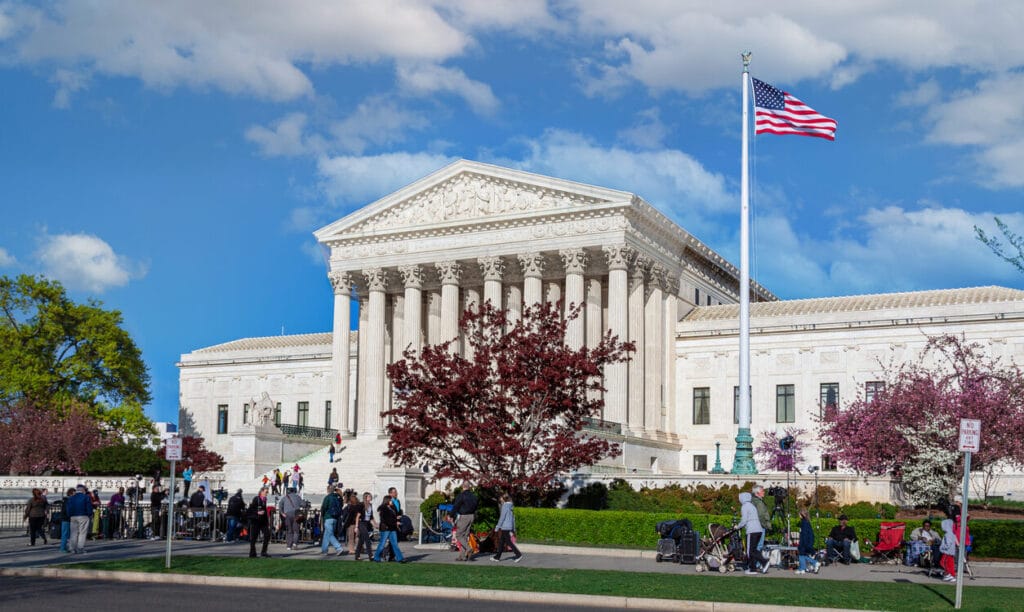Populism and the administrative state

The U.S. Supreme Court seems poised to end “Chevron deference,” handing America’s political right a long-sought victory over the federal administrative state. Alongside the Court’s 2022 landmark articulation of the “major questions doctrine” (MQD), Chevron’s demise promises to slow the brash policymaking of Washington’s unelected officials.
More broadly, though, by returning power to legislators and the voters they represent, these decisions could help diffuse this era’s unusual populist energy. But for that to happen, Congress would need to start doing its job and state leaders would need to ensure that their agencies don’t become the new, presumptuous administrative state. In other words, the U.S. Supreme Court alone can’t rejuvenate democratic deliberation and decision-making.
***
Populism is nothing more than the distance between the public’s interests and the government’s behavior. When voters believe their government is of, by, and for people—even if they don’t like some policies—populist energy is negligible. But when the public sees government officials serving their own interests or the interests of niche groups, populism swells. Accordingly, often the best way to stave off populism is to expand democratic control. Put the people back in charge.
This is why state governments have a natural resistance to populism. They are closer to home and therefore more knowledgeable about and responsive to their citizens’ concerns. It’s no coincidence that populist frustrations are typically aimed at faraway forces: 19th century American farmers vs. East Coast industrialists, Brexit vs. European elites, the Occupy movement vs. global financial institutions, the Tea Party movement vs. “Beltway bandits.” Moreover, the most powerful actors in state and local governing are almost always elected, and elections keep the people in control. Governors, legislators, and mayors are elected. State attorneys-general are elected in 43 states, and state supreme court justices are elected in 24. In 12 states, even the state’s top education official is elected.

The federal bureaucracy, on the other hand, is naturally prone to stoking populism. Its officials are unelected. They generally work inside the Beltway, often thousands of miles from those they affect. And their activities (like regulations, guidance letters, investigations, and administrative hearings) operate outside of normal democratic channels. So by reeling in brazen agencies, the rise of MQD and the fall of Chevron serve as important pro-democracy steps. But eternal vigilance is required: Agencies will look for ways to bounce back. Even the most principled officials feel compelled to strengthen the administrative when they come to power. We must stay alert to enterprising presidents and executive-branch officials in the MQD/post-Chevron era. As importantly, we must watch state-level events.
***
The pandemic saw governors’ powers at their apex. States have enormous control over health and safety, and governors are generally authorized to act in these areas during exigent circumstances. They responded with quarantines, lockdowns, school closures, and more. That type of power is hard to relinquish. Worse, today’s nasty politics may well convince governors that such strong executive-branch initiative is the way to govern moving forward. Since deliberation and compromise are now out of style, deferring to the legislature may seem antiquated. And since our side is virtuous and our priorities are critical (and since their side is unwise and stubborn), more officials may be convinced that decisive executive action, not plodding democratic procedure, is the answer. Indeed, we have seen recent gubernatorial executive orders on artificial intelligence, climate change, environmental education, DEI, free speech, housing, public service, and much more. It would seem that next up will be state cabinet officials issuing a wave of regulations and guidance letters.
Though Democrat and Republican governors could pursue this unsound strategy together, America’s political left is more susceptible to the lures of executive action. Progressives’ technocratic tendency—that outsized faith in elite-educated, ostensibly dispassionate experts to craft and execute sounds policies—nudge them toward a bolder administrative state. So while the federal administrative state might now be in a forced retreat, will state-level administrative states—especially in blue states—be on the march?
***
Perhaps not. But it’s complicated. First, most state legislatures have given themselves significant power over executive-branch rules. As documented in an outstanding 2018 essay in National Affairs by C. Jarrett Dieterle, in many states, a legislative committee (or the whole legislature) reviews and can sometimes even veto regulations. This takes place in a variety of ways, but the upshot is that the voters’ representatives can ensure that the administrative state doesn’t craft policies inconsistent with the legislature’s will.
Second, because states have different constitutional and statutory language and different precedents, state courts follow different rules on how much deference to give to agencies. In a recent article in the Harvard Journal of Law & Public Policy, Federal Appeals Court Judge Jeffrey Sutton (who is among the nation’s most interesting jurists, partly because of his knowledge of state constitutions) took a brief tour of state-court practices and trends. Let’s just say they vary. One scholar found 17 different approaches to deference. In Mississippi, the state supreme court banned deference to agencies in the interpretation of statutes. But in about half of states, courts give substantial deference to the executive branch.
Third, while a legislature should keep its executive branch in check, there is always the danger of taking this too far. The executive branch has constitutional and statutory powers and duties. It needs to administer laws and programs. We should aspire to have agencies follow the legislature’s lead; we should not aspire to emaciate them. In a smart 2022 journal article, University of Michigan law professor Christopher Walker describes a potential problem along these lines, one I call “ungoverning.” If MQD, deference rules, or some other mechanism ties the hands of administrators, important things might not get accomplished at all. Sometimes the legislature wants or needs the executive branch to act. Sometimes, if an agency action is stopped by a court, the legislature won’t follow up with clarification. As a result, instead of an agency doing something potentially improper, the entire government might do nothing whatsoever.
***
Tamping down populism doesn’t mean punishing the government. It means ensuring the government is attuned to the electorate. And that means active legislative branches. So MQD and the demise of Chevron represent the beginning not the end of the conversation at the federal level. Yes, agencies can’t decide major policy questions unilaterally. But will Congress start to do so again? Yes, federal courts might stop deferring to agencies’ interpretations, but will Congress ever again legislate in ways that make executive-branch adventuring impossible and unnecessary?
We need strong legislatures to reflect public sentiment and to channel that energy into governing decisions.
And at the state level, if governors and agencies start going too far, will legislatures respond? Will they use their authority to reject improper regulations? Will they limit how much deference courts give agencies? Will they use their judicial-confirmation power to ensure judges constrain agency policymaking?
All of this points back to the health of democracy. We must recover the understanding that legislative initiative is essential to America’s experiment in popular sovereignty. We need strong legislatures to reflect public sentiment and to channel that energy into governing decisions. Legislators must step up. But presidents and governors have a responsibility on this front, too.
If an executive has a bold vision on schools, AI, housing, transportation, policing, or something else, draft the proposal and send it to the legislature. Encourage study, debate, and compromise. Even if the political climate is hot, even if the deliberative process is slow, even if you don’t get everything you want, allow the people through their elected representatives to govern. At the state level, if the legislative session isn’t long enough, extend it. If the legislature doesn’t have the staff to sufficiently research the matter, fund it.
The way out of today’s political animus and populist energy is not executive energy but deft, democratic governing.
Andy Smarick is a senior fellow at the Manhattan Institute, where his work focuses on education, civil society, and the principles of American conservatism.



